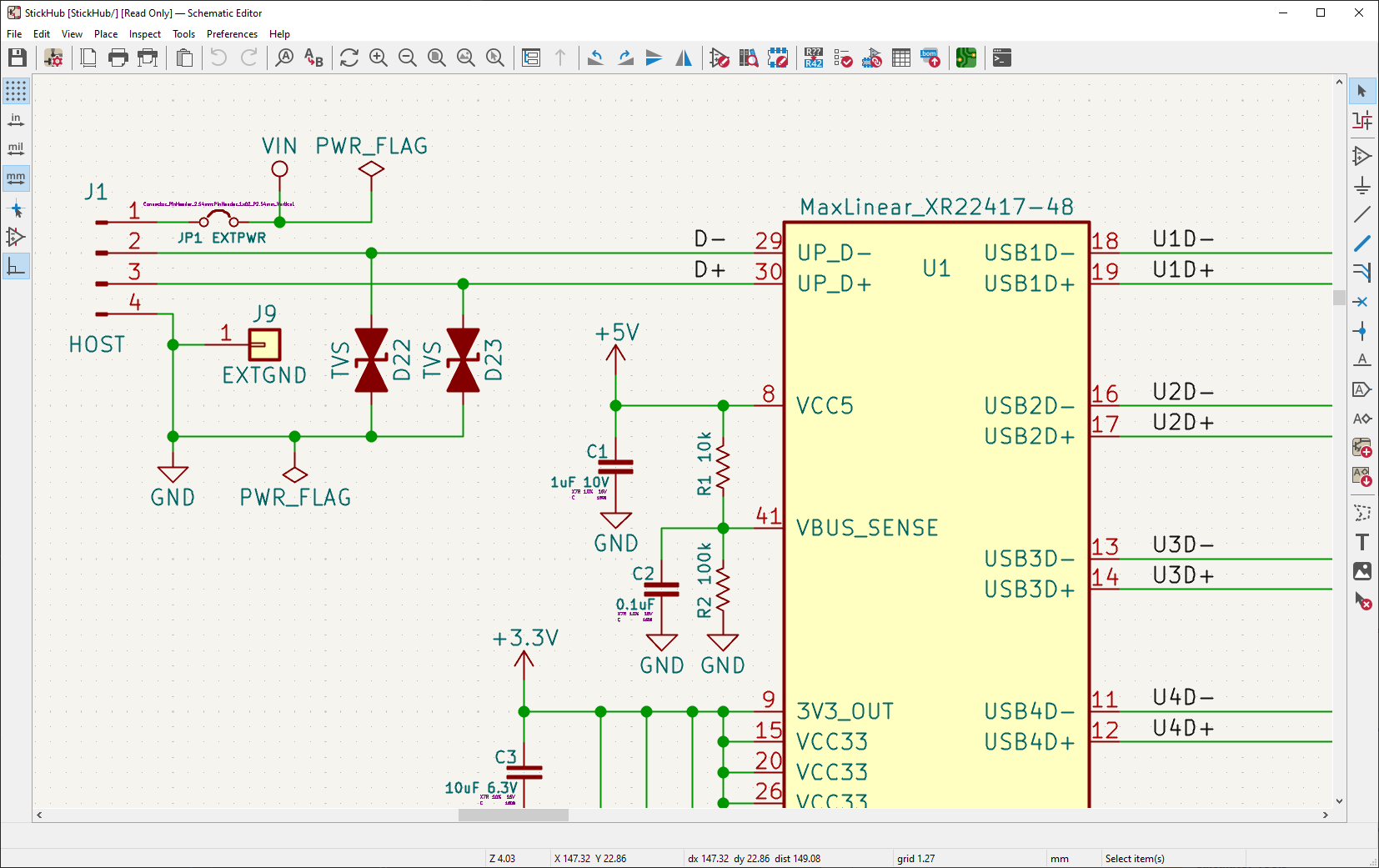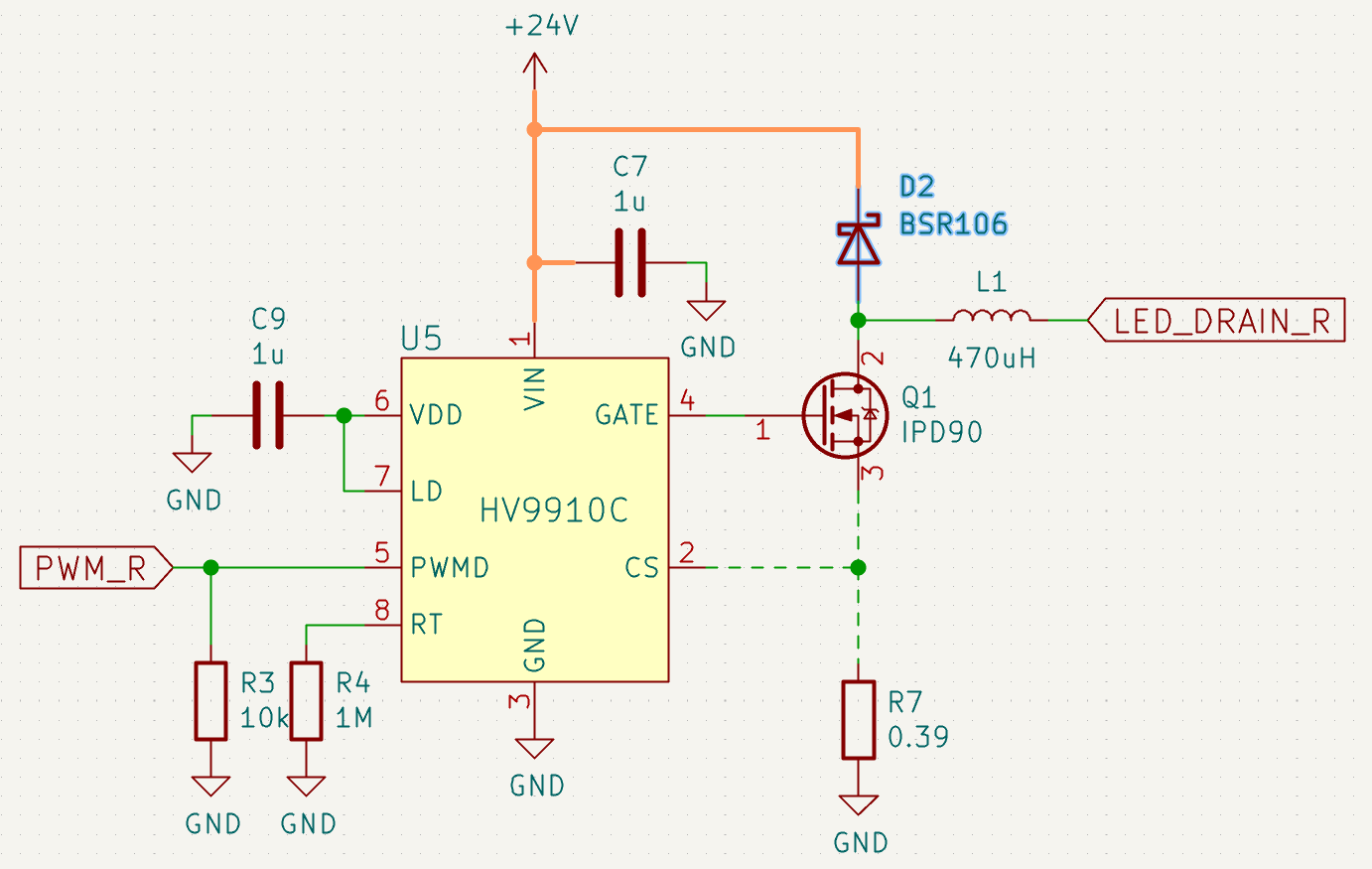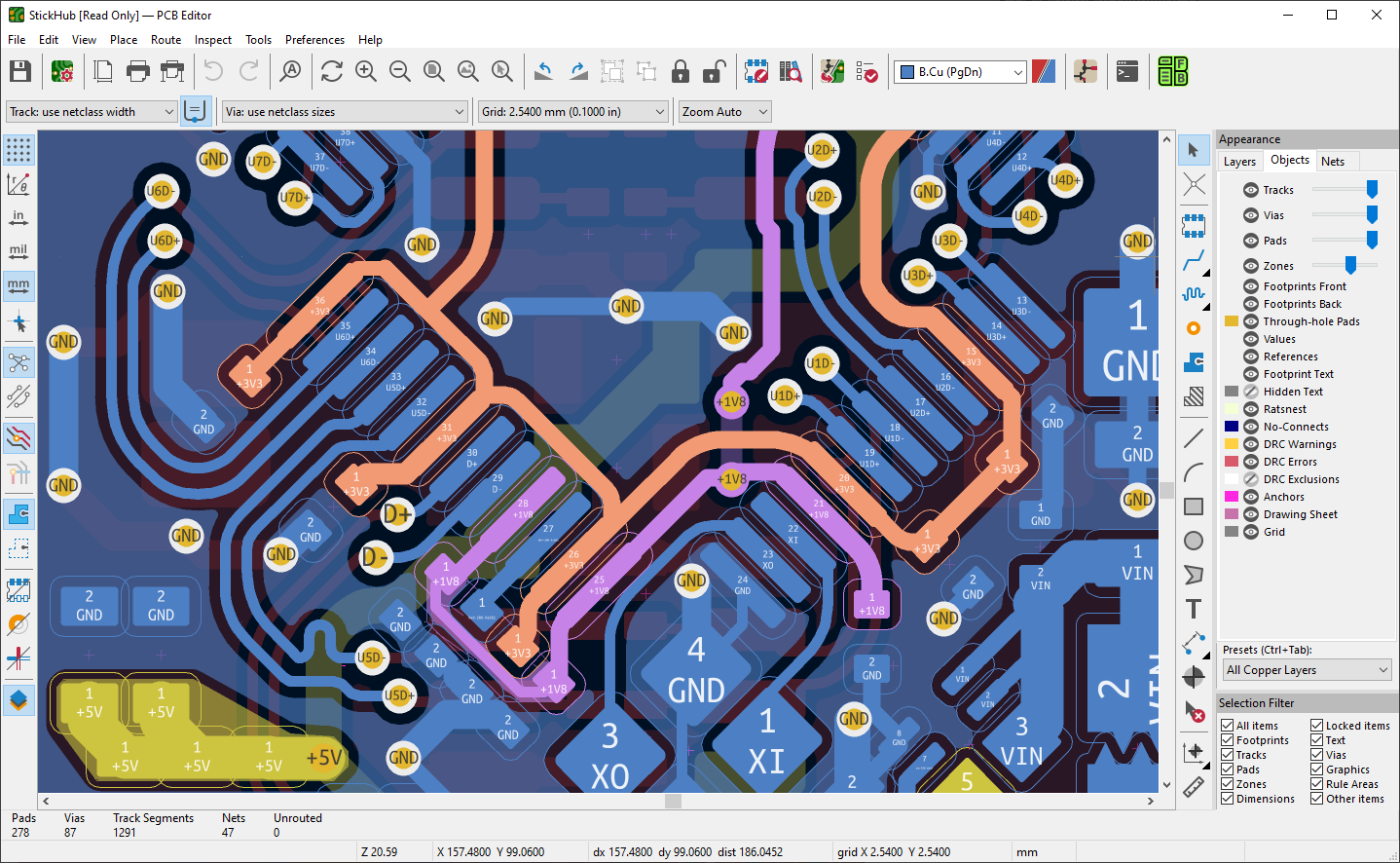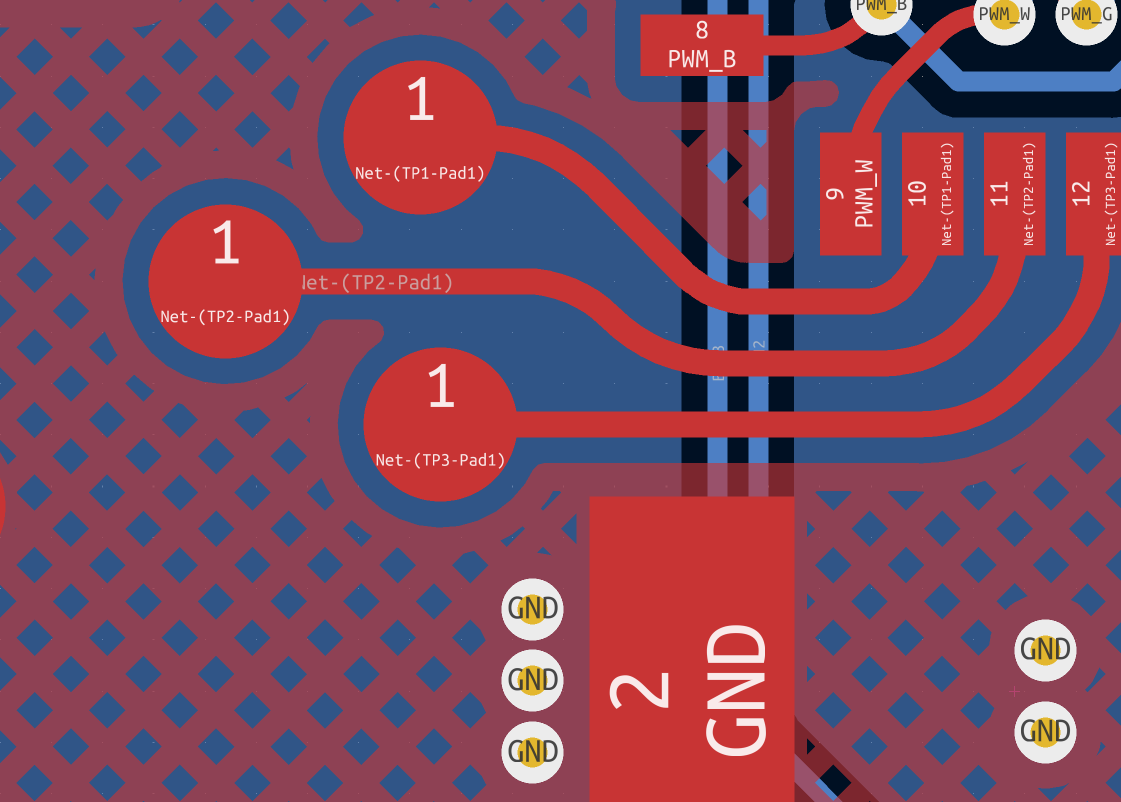The developers behind KiCad have released a new version! KiCad 6 is a collection of open source programs for designing electronic schematics and printed circuit board layouts. Furthermore, it can create a bill of materials, Gerber files and a 3d rendering of the pcb and its components. KiCad has an extensive library of components, including the symbol, footprint and 3d models. A Spice simulator is also included. The release notes for version 6.0 can be found below.
KiCad 6 Release
The KiCad project is proud to announce the release of version 6.0.0. This is the first major version release of KiCad since 5.0.0 was released in July of 2018. KiCad binaries are available for download for Windows, MacOS, and Linux or will be in the very near future. See the KiCad download page for guidance.

There have been many important changes that make this release a substantial improvement over the 5.x series and a worthwhile upgrade for users on all platforms. There are hundreds of new features and improvements, as well as hundreds of bugs that have been fixed. Below are some of the highlights of the new release. Thank you to all the developers, packagers, librarians, document writers, translators, and everyone else who helped make this release possible. We hope you enjoy the latest release of KiCad.
Modern, consistent look and feel
KiCad 6.0 features a refreshed user interface designed to reduce the barriers of entry for new users and ease friction when switching between KiCad and other design software. The visual design language, hotkeys, dialog layouts, and editing workflows have been harmonized across KiCad so that it no longer feels like you are using two different tools when switching between the schematic and PCB editors.


Upgraded schematic editing
KiCad’s schematic editor has received its biggest overhaul ever for version 6.0. It now uses the same object selection and manipulation paradigm as the PCB editor, and has received dozens of new features to empower your design. Assign net classes from within the schematic editor, and apply line color and style rules to wires and buses individually or based on net class. Create buses that group together multiple signals with different names for easier hierarchical design.
KiCad 6.0 also features a brand-new schematic and symbol library file format, based on the format used for KiCad board and footprint files. This new format enables long-desired features such as embedding symbols used in a schematic directly in the schematic file, so that cache libraries are no longer needed.

Improved PCB design experience
KiCad’s PCB editor has had a complete look and feel upgrade, featuring many new options to help you navigate complicated designs. Save and restore custom view presets. Hide certain nets from the ratsnest. Control the opacity of zones, pads, vias, and tracks independently. Set colors for specific nets and net classes, and apply those colors to the ratsnest or to all the copper attached to that net. Use the new Selection Filter panel in the lower-right corner of the editor to control what types of objects can be selected.

Create advanced boards with KiCad’s added support for rounded tracks, hatched copper zones, and unconnected annular ring removal. The push-and-shove router and track length tuning features have also been improved for faster, easier, and more user-friendly routing.

Visualize your board in more ways than ever with KiCad’s updated 3D viewer, featuring raytracing lighting controls, highlighting of objects selected in the PCB editor, and easier access to frequently-used controls.
A new custom design rule system allows complex design rules to be defined, including area-specific rules, layer-specific rules, and other constraints required for advanced designs.
And much more…
With the thousands of changes made between KiCad 5 and KiCad 6, it is difficult to capture all the new and improved features in one place. Below is a partial list of new features in KiCad 6. In addition to these new features, hundreds of bug fixes and performance improvements have been contributed by dozens of volunteers. Thank you to everyone who helped make KiCad 6 our biggest release ever.
Project management and core functionality
- Integrated automatic project backup system (Jon Evans)
- Plugin and Content Manager (Andrew Lutsenko)
- Side-by-side installation with independent settings (Jon Evans)
- Expanded mouse and touchpad settings (Jon Evans)
- Dark mode support on Linux and macOS (Jon Evans)
- Support for displaying measurements in inches (Mikołaj Wielgus)
- Project-wide text replacement variables (Jeff Young)
- Standardized recommended user content folder locations (Mark Roszko)
Schematic and symbol editing
- Intersheet references (Franck Jullien)
- One-click wire start (Mark Roszko)
- Align to Grid action (Seth Hillbrand)
- Edit Text and Graphic Properties dialog (Jeff Young)
- Mark certain ERC errors as ignored (Jeff Young)
- Additional ERC checks (Jon Evans)
- Assign net classes inside schematic (Jeff Young)
- Line color and style by net class (Jeff Young)
- More flexible annotation of pasted objects (Roberto Fernandez Bautista)
- Improved symbol inheritance model (Wayne Stambaugh)
- Improved page number support (Wayne Stambaugh)
PCB and footprint editing
- Drag components with traces attached (Tomasz Wlostowski)
- Push-and-shove router improvements (Tomasz Wlostowski, Jon Evans)
- Remove unused annular rings from vias and pads (Seth Hillbrand)
- 3D viewer performance and visual improvements (Mario Luzeiro, Oleg Endo)
- Drilled holes statistics table (Mikołaj Wielgus)
- New dimension types (Jon Evans)
- Convert between graphic lines, polygons, and tracks (Jon Evans)
- Multi-layer copper zones and rule areas (Jon Evans)
- Graphical board stackup table (Fabien Corona)
- Improved snapping behavior (Seth Hillbrand)
- Improved net inspector tool (Oleg Endo)
- Object grouping (Joshua Redstone)
- Geographic Re-annotation (Brian Piccioni)
- Physical stackup editor (Jean-Pierre Charras)
- Easy what-you-see-is-what-you-get custom footprint pad creation (Jeff Young)
- Allow inverting coordinate axes (Reece Pollack)
Simulation and utilities
- Expanded support for SPICE simulation (Sylwester Kocjan)
- Improvements to simulation GUI (Mikołaj Wielgus)
- E-Series resistor calculator (janvi)
- Improvements to GerbView “Export to PCB” (Peter Montgomery)
Plotting, importing and exporting
- Altium Designer importer (Thomas Pointhuber)
- CADSTAR importer (Roberto Fernandez Bautista)
- EAGLE importer improvements (Jeff Young, Seth Hillbrand, Jan Mrázek, Thomas Pointhuber)
- Improved Gerber format support (Jean-Pierre Charras)
- Selectable color themes for printing (Jon Evans)
- Improved STEP format support (Mark Roszko, Seth Hillbrand)
- Improved DXF import support (Mark Roszko, Tomasz Wlostowski)
- HyperLynx exporter (Tomasz Wlostowski)
Deprecation notes
The following features are deprecated as of version 6.0:
- XSLT BOM generation scripts will no longer be supported in the next major release of KiCad, and KiCad 6.0 no longer ships with example XSLT scripts. If you currently use XSLT scripts, please migrate to Python BOM scripts during the 6.x release cycle.
- The SWIG Python API will be removed in a future release of KiCad and replaced with a new Python API. Users may continue to use the SWIG API and report bugs against it during the 6.x release cycle, but no new major features will be added to the SWIG API.

